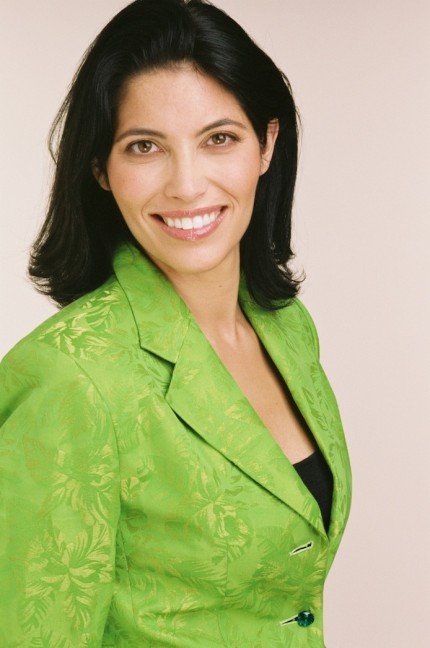From Handel to Haydn, McGegan leads fresh and varied CSO program
In the middle of this current endless winter, it’s a good time for an evening of lightish diversion. That’s just what the Chicago Symphony Orchestra is serving up this week with Nicholas McGegan handling podium duties for a varied mix of Baroque and Classical works.
The program is featuring Vivica Genaux in her belated CSO debut. The Alaska-born mezzo-soprano looked delighted to be here Thursday night, flashing a big smile and giving finger waves to the audience behind the stage. The Chicago weather no doubt made her feel at home.
Genaux is best known for her Baroque and early music credentials, achieving renown over a decade ago for her “Arias for Farinelli” CD (harmonia mundi) singing music written for the famous Italian castrato.
Genaux’s agility remains impressive. She tossed off a stupefying blizzard of notes in the florid aria “Alma oppressa da sorte crudele” from Vivaldi’s opera La fida ninfa. Genaux was even more dazzling in “Qual guerriero in campo armato” from the opera Idaspe, written for Farinelli by his brother Riccardo Broschi. Yet even with the lightning coloratura, leaps and assorted pyotechncial fireworks, this kind of showy but barren music begins to pall very quickly, even when thrown off with this kind of technical assurance and panache.
Genaux’s mezzo is rather slender and somewhat monochrome in color, and at times failed to project evenly between registers. Some of the intrusive breaths in the Vivaldi were also apparent in an aria from Popora’s Polifemo, where the singer’s choppy phrasing and lack of a smooth legato made one more aware of the technical challenges than the music.
“Or la nuba procellosa” from Hasse’s Artaserse went better with Genaux bringing a graceful expression and richer tone to the lilting aria. The singer’s longtime colleague McGegan offered glove-like support, eliciting fiery playing by the CSO strings in the showpiece items.
It’s rare to hear music of Johann Sebastian Bach at symphonic concerts, let alone one of his sons, so give McGegan credit for programming Johann Christian Bach’s Symphony in G minor.
JC Bach was highly regarded in his day, even by his young friend Mozart, and achieved great success in London, earning him the title “The English Bach.” His fortunes declined as his music faded in popularity and he died in poverty, after his housekeeper swiped most of his money.
While interesting to hear, based on this symphony (for strings and pairs of oboes and horns), I don’t think we’ve been missing all that much from Johann Sebastian’s youngest son. The first movement suggests a more restless and aggressive Mozart while the Andante plumbs a darker, more somber expression.
Yet the symphony doesn’t exactly show Johann Christian as the most gifted of the Bach progeny. The insistent finale is empty for all it’s driven minor-key angst and one wondered if McGegan’s tendency to lean hard on accents was making this music sound even less subtle than it is. A vital and worthy performance by the CSO’s reduced forces, a couple violin lapses apart.
Haydn’s “Military” Symphony (No. 100) has not been played by the CSO in 24 years since led by Klaus Tennstedt. (The second half of that season-ending 1990 program included an unforgettable Mahler 4 with the late Arleen Auger an otherworldly soprano soloist.)
McGegan is a gifted Haydn conductor and clearly knows what he is about in this music (if not equalling the delicious wit and infectious charm of Nicholas Kraemer’s Haydn with Music of the Baroque). Apart from allowing the brass to swamp tuttis in the opening movement, McGegan led a well balanced and enjoyable performance, bringing out the quicksilver energy of the outer movements.
The symphony’s title stems from the “Turkish” music (cymbals, triangle and bass drum) that bursts in on the second movement—along with an Austrian trumpet fanfare later mined by Mahler as well. It’s a testament to McGegan and the CSO percussionists that the sudden Janissary intrusion seemed strange and out of place even to jaded 21st century ears, as Haydn no doubt intended (was it some private joke?), its reprise adding suitable noisy tumult at the coda.
The evening led off with Handel’s Concerto grosso in G major, Op. 6, no.1. McGegan’s brisk yet buoyant direction elicited a delightful performance with stylish violin contributions from Stephanie Jeong and Baird Dodge.
The program will be repeated 7:30 p.m. Tuesday. Gerard McBurney, Nicholas McGegan and the CSO will also present a Beyond the Score program spotlighting Haydn’s “Military” Symphony 7:30 p.m. Friday and 3 p.m. Sunday. cso.org; 312-294-3000.
Posted in Performances



